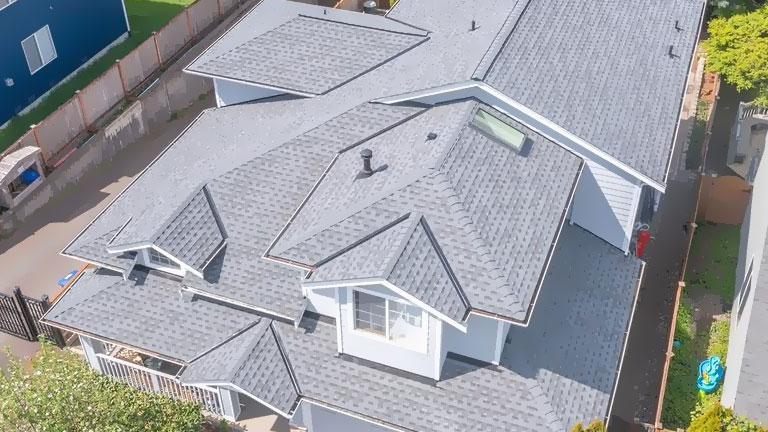
Hiring a roofer is kind of like hiring a babysitter for your home; you are entrusting someone with something very important, and you want to be sure they actually know what they are doing. The only difference is, if your babysitter messes up, you can clean up the mess in a few hours. If your roofer messes up, you may have leaks, water damage, and repair costs that make your eyes water.
So, then, how do you distinguish between real professionals and weekend warriors who have a ladder and a Facebook page? Let’s dissect the roof repair checklist every homeowner needs to know before agreeing to a roofer.
1. Check Their Paperwork (Yes, It Matters)
A qualified roofer will also possess the right licenses and insurance to do work legally and safely in your state. For example, this generally means that they should possess a Domestic Builder Licence if they are conducting structural work, as well as public liability insurance.
Forgetting this step is like getting a driver without verifying whether they possess a licence; you may be okay for some time, but if anything goes wrong, you’ll regret not having inquired.
Tip: Ask to see the paperwork, don’t just take their word for it. A real professional will be happy to hand it over.
2. Ask About Local Experience
Roofs aren’t a one-size-fits-all affair. The materials and techniques that prove effective in cooler, wetter climates may be different from those required elsewhere.
Where most houses have older terracotta or concrete tiled roofs, professional roofers will be aware of the idiosyncrasies of using terracotta and concrete tiles, such as how brittle they become after decades of exposure to the sun. Conversely, newer outer-suburb estates might employ lightweight metal roofing, which possesses its own maintenance requirements.
Consider, for instance, certain roofers who live with the mercurial weather fluctuations that can experience four seasons within a day. They understand how to work with materials that are resilient enough to handle summer temperatures as well as flashes of winter storms.
3. Look for Proof of Past Work
Any roofer worth his salt should be able to provide you with his previous work. If he cannot present photos, testimonials, or locations where you can see his work, that is a warning sign.
It is not about obtaining glossy brochure photos, even a couple of smartphone snaps of finished work, or contact information for previous happy clients who will happily speak, can provide you with the confidence.
You want uniformity: straight lines, cleanly finished flashing, and materials that are consistent with the rest of the house.
4. Ask About Their Process
A good roofer will not just tell you what, they will explain how.
For example:
- How do they inspect for hidden damage?
- Will they replace damaged underlayment, or just patch the visible spots?
- How will they protect your property during the work?
If their answers sound vague or they brush off your questions, that’s a sign they might be more interested in getting the job done quickly than getting it done right.
5. Understand the Quote, Every Line of It
A clear, detailed quote is your best protection against surprise costs.
Breakdowns should include:
- Materials (type and brand)
- Labour costs
- Any scaffolding or equipment hire
- Waste removal fees
If you get a one-line quote that just says “Roof repairs, $5,000,” you’re basically being asked to trust them blindly. That’s fine for lending your mate a lawnmower, not for spending thousands on your roof.
6. Don’t Ignore the Gut Check
Occasionally, it’s not about the form or the fee. It’s about whether or not the individual standing in front of you is trustworthy.
Do they arrive punctually? Do they speak clearly? Do they honor your questions?
One homeowner commented that they knew their roofer was the right one because he took an additional 20 minutes walking them around the property, showing them maintenance tips they could do themselves, no upsell, just tips. That’s the kind of behaviour you want to see.
7. Compare Suburb-Specific Challenges
Different areas pose different challenges for roofing.
- Inner-city suburbs often have tight access, which means more time and labour just to set up scaffolding. Heritage overlays can also limit your choice of materials.
- Coastal suburbs face salt spray and high winds, which can shorten the lifespan of certain metals.
- Leafy Suburbs mean gutters can clog faster, adding extra strain on the roof edges and increasing the risk of water ingress if flashing isn’t maintained.
A skilled roofer will recognise these challenges and explain how they’ll address them in your specific area.
8. Learn the Common Red Flags
If you hear any of these, tread carefully:
- “We can start tomorrow, but I will need full payment upfront.”
- “No need for a contract, a handshake is enough.”
- “We don’t do written quotes, but it will be about…”
Also, be wary of anyone knocking on your door offering to fix “damage” they spotted while driving past. Sometimes they’re legitimate, but it’s also a common scam tactic.
9. Balance Price With Value
It’s easy to take the lowest price quote, particularly if the roof issue can’t be seen from your driveway. But keep in mind, a bad fix will end up costing you a lot more down the line.
If one roofer’s estimate is way lower than the others, question why. Occasionally, it is because they are skimping on materials or doing it as quickly as possible.
Conversely, a greater quote doesn’t necessarily equate to quality work but usually better materials, more extensive preparation, and a longer warranty.
10. Keep Maintenance in Mind
Even the best roof repair won’t last forever if you don’t take care of it. Get a basic maintenance schedule from your roofer, check the tiles how often, clean gutters, and inspect for damage.
A good tradesperson wants their work to last, and they will tell you how to keep it in shape.
At the end,
Selecting a roofer is not something you want to do hastily. By reviewing documents, asking the appropriate questions, and noting local experience, whether you are speaking with roofers familiar with volatile weather or roofers in Doncaster who know the idiosyncrasies of tiled roofs, you’ll be giving yourself the best opportunity of getting somebody who’ll get the job done properly.
A proper roof isn’t merely about keeping the rain away. It’s about preserving your home, your possessions, and your peace of mind. And that’s worth the little extra time it takes to do it correctly.


